Under Forties 2022
Lori Burkhart is Editor-in-Chief of Public Utilities Fortnightly.
This year for the Fortnightly Under Forties feature, the PUF team wanted to share even more about our impressive nominees. As usual, you can check out profiles of all our nominees in this issue.
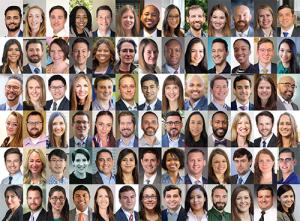
But this time, we gave our Under Forties the chance to tell us a little about themselves. We asked each of them three questions, and they delivered.
In their own words, you can read what some of them find most rewarding, which people helped on their road to success, and what advice they have for the next generation of innovators. While we couldn't fit everyone's fantastic responses into the article, here are some highlights from our respondents across the industry.
What's most rewarding about your career to date?
The aspects of their careers that our nominees found rewarding may be familiar to many industry veterans. Issues such as innovative sustainability efforts and dedicated contributions to a cleaner, more energy efficient future. Or the sense of community, both among their colleagues and in their locale. Perhaps it's making a difference in their communities that motivates many in the industry.
"The most rewarding part of my career is the impact my work has on the greater St. Louis community," said Ameren Missouri's Tyler Clarke. "From exciting new developments to some of the less predictable times, like when storms hit, and I am one of the first responders the community counts on to get the lights back on."
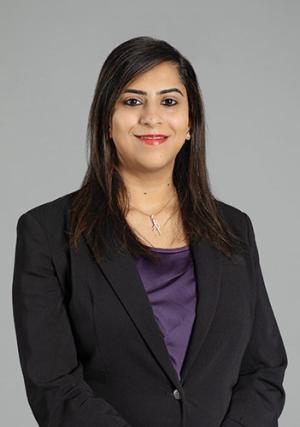 Collaborative knowledge building is what Burns & McDonnell’s Madhu Bhargava says is most rewarding to her. “Whether it’s via problem-solving exercises or just day-to-day collaboration, it is gratifying to pay it forward by sharing knowledge, and humbling to keep learning.”
Collaborative knowledge building is what Burns & McDonnell’s Madhu Bhargava says is most rewarding to her. “Whether it’s via problem-solving exercises or just day-to-day collaboration, it is gratifying to pay it forward by sharing knowledge, and humbling to keep learning.”
But it's not only in times of crisis that they focus on this community impact. To Arizona Public Service's Omaya Ahmad, "Access to electricity is essential to human well-being. I am immensely fulfilled that my professional work contributes to ensuring our customers maintain their quality of life."
That sense of pride was echoed by many respondents, including CPS Energy's Jonathan Tijerina. "I take pride in knowing that every decision point and strategy has a direct impact on my neighbors, family, friends, and community. I am proud to be a small part of a bigger machine that drives to deliver affordable power."
The infrastructure on which utilities rely is also built by some of our nominees. Emily Asnicar, a senior civil engineer at Burns & McDonnell believes her greatest reward is seeing her projects come to fruition. "I love seeing designs go from concepts to paper to real life. It's such a fun process to navigate. No project is the same and there are always new ideas and new challenges to overcome."
A senior project engineer from the New York Power Authority, Jungmin Hou, had similar thoughts. "I get most excited when I realize the project's vision come to life and see the final product in action. There is a big sense of pride in knowing that I have contributed toward something that will directly benefit the public at large and make lasting impact to the communities it serves."
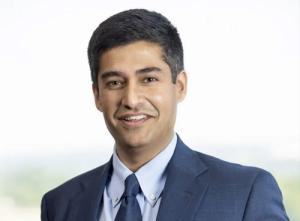 Southern Company’s Arnab Ghosal may have said it best: “Some of my closest friends are the people I get to work with every day. That is something that is probably not common and something I am so grateful for.”
Southern Company’s Arnab Ghosal may have said it best: “Some of my closest friends are the people I get to work with every day. That is something that is probably not common and something I am so grateful for.”
Still others cited the industry's continual evolution and the wealth of knowledge to be gained. Leon Cheung of the British Columbia Utilities Commission described his work environment as being surrounded by critical thinkers passionate about energy goals. "We work together to test a case, find alternatives, and debate solutions. The utility industry is always changing. Knowing that I can learn or help someone learn something different every day is most rewarding for me."
That collaborative knowledge building is what Burns & McDonnell's Madhu Bhargava says is most rewarding to her. "Whether it's via problem-solving exercises or just day-to-day collaboration, it is gratifying to pay it forward by sharing knowledge, and humbling to keep learning."
But the overwhelming majority of responses to our first question told us something we already knew. What we love the most about our industry is the people we share our work with every day.
American Municipal Power's Bryan Walsh said, "Throughout my career I have had the privilege of meeting and working alongside highly talented individuals. We have succeeded and failed together, working toward the same goals. The network of people that I have come to know has been a true privilege."
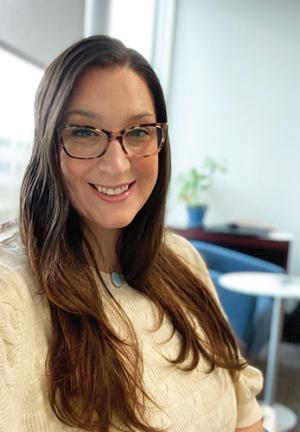 Amanda Maxwell from the Washington Utilities and Transportation Commission cited her peers as her best mentors. “I have great colleagues at the UTC and many of us have grown up at this agency together. We’ve supported each other through successes and challenges, learning from both.”
Amanda Maxwell from the Washington Utilities and Transportation Commission cited her peers as her best mentors. “I have great colleagues at the UTC and many of us have grown up at this agency together. We’ve supported each other through successes and challenges, learning from both.”
Walsh's sentiment was mirrored nearly exactly by Omar Urquidez from 1898 & Co. "In my career, I have worked with utility representatives who are some of the most talented, purpose driven professionals around. As department manager, I get to mentor and train the professionals who will solve tomorrow's energy challenges."
It's those relationships that Walsh, Urquidez, and many others find most rewarding about their work. Not only do they have common goals, but everyone understands what each other is up against and is ready to lend a hand. So explains North Dakota Public Service Commission's Jack Schuh. "Everyone understands that [our] decisions have real impacts on communities and individuals and there is always someone who will pick up the phone to point you in the right direction and help you flesh out an issue."
Passion for common goals also might be what brings them together. Southern Company's Arnab Ghosal may have said it best: "Some of my closest friends are the people I get to work with every day. That is something that is probably not common and something I am so grateful for."
Who was a mentor that helped you achieve as you have?
Who do this year's nominees credit with helping them reach this point in their career? The phrase, it takes a village, came from several of our respondents. On the subject of mentors, it was difficult, or sometimes impossible, for our nominees to choose just one.
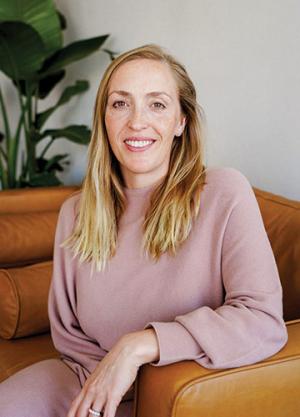 The Electric Power Research Institute’s Agatha Vaaler Kazdan’s mentor was instrumental in her professional development. “She gave me broad exposure and opened the door to unique experiences working on strategic plans for inspiring leaders in local government, education, tribal, environmental, and community economic development sectors.”
The Electric Power Research Institute’s Agatha Vaaler Kazdan’s mentor was instrumental in her professional development. “She gave me broad exposure and opened the door to unique experiences working on strategic plans for inspiring leaders in local government, education, tribal, environmental, and community economic development sectors.”
Many named mothers, fathers, and older siblings. "I come from a family of strong women who exhibit confidence and patience," said Alabama Power's Brandi Hurst. "They taught me to do my best even if I could not see how it was making a difference at the time ... to ask questions, be creative, and see things from different perspectives."
Others named current or former managers and supervisors. The British Columbia Utilities Commission's Phil Stallard described one mentor's strategy of challenging him. "In a previous job, I joined a team as the most junior by over ten years. Despite a busy schedule, my manager always dedicated time to expand my industry knowledge and didn't hesitate to throw me in at the deep end to gain experience working with senior industry players."
Guidehouse's Danielle Vitoff named a partner at her firm, Dan Bradley, as one of her mentors. "Dan has helped me sort through my wildest ideas and my greatest challenges, translating them to decisions and action. I have found that the greatest mentors are those who can ask the hard questions to make you reflect and strengthen your vision."
Meanwhile, Amanda Maxwell from the Washington Utilities and Transportation Commission cited her peers as her best mentors. "I have great colleagues at the UTC and many of us have grown up at this agency together. We've supported each other through successes and challenges, learning from both. Having a strong accountability network is what keeps me focused and grounded."
Whoever they identified as contributing to their success, our nominees acknowledged how fortunate they were to have not only their support, but also their invaluable advice. American Municipal Power's Tommy Della Rocco described how his mentor's advice helped him prioritize and navigate through challenges. "He told me that one must always know three things to be successful. Know your mission, know your boss, and know your assets."
It's mentorship that keeps these professionals evolving. The Electric Power Research Institute's Agatha Vaaler Kazdan's mentor was instrumental in her professional development. "She gave me broad exposure and opened the door to unique experiences working on strategic plans for inspiring leaders in local government, education, tribal, environmental, and community economic development sectors. She gave me great insight into navigating the professional world."
How do you advise younger people just starting out in this industry?
Now it's some of the Under Forties' turns to offer mentoring wisdom to the next up-and-comers in the industry. There were overlapping themes in the responses to our questionnaire. Our Under Forties know as well as industry veterans the value of collaboration, adaptability, and resilience. They also know the challenges of facing failure and the joys of finding their passions.
One piece of advice several offered was to be open to new experiences in their professional lives. "Never be afraid to try something new," says Davis Gates from the Mississippi Public Service Commission. "In law school, I had no idea there was an area of law that focused solely on public utilities. But I think the willingness to learn a new area of law has really positioned me to continue to grow and, hopefully, excel in this industry."
According to the Maryland Public Service Commission's Michael Jiang, it's important to be open to experiencing a variety of work. "I've often found myself working on new topics. And with the industry currently changing rapidly and new technologies emerging, there may be a need to learn as you go."
As you learn, continue seeking advice and asking questions, say other respondents, like Dentons' Adriana Velez-Leon. "First, do not be afraid of taking risks and stepping outside your comfort zone. Second, seek out mentors that will support and guide you."
"Constantly ask the question why and volunteer," says Benjamin Baker from the Maryland Public Service Commission. "You will be much more effective in your job if you understand the operations of the utility systems and the history of regulatory paradigms we operate in. Additionally, you will have a greater opportunity to work on neat projects simply by asking."
You can find new projects and new people by getting involved at your organization and elsewhere in the industry, say our Under Forties. The Electric Power Research Institute's Aidan Tuohy says that getting involved has been a highlight in his industry education. "Some of the best discussions and learning I've had have been with task forces and working groups at places like IEEE, NERC, ESIG, and CIGRE. You get to hear a variety of views and build that larger network of people who you can reach out to over time."
Although these pieces of advice may help to propel you to success, others claim it's more than that. Many say it's important to dedicate yourself to lifelong learning. "Be curious and relentlessly educate yourself about all aspects of the industry," says Commissioner Gabrielle Passidomo from the Florida Public Service Commission. "That way, when an opportunity arises, you have the foundation and confidence to step into a new and more challenging role."
"Don't be afraid to ask questions and learn to listen, understand, and absorb from the staff," adds Matt Bracey from the Iowa Utilities Board. "The utility regulation industry is a complex and unique industry with a tremendous amount of information to study, including current docket work and past docket decisions. The more you can read and learn, the more successful you will be in helping move your commission and the industry forward."
Southern Company's Robin Lanier stressed the importance of learning everything you possibly can, and how it benefits your career in the long run. "Take time to learn the business and learn about your colleagues. If you do not fully understand something, find time to learn about it and not gloss over it. It is easy to want to pass on tasks and assignments that may not seem interesting ... Try to find ways to learn about the business, improve processes, and expand your network when completing small tasks. I have been surprised when new information or new relationships helped in a future endeavor."
PUF received many great responses in our Under Forties Q&A, and we regret we were unable to feature them all. Among those who answered our questions were Ameren's Jackie Becker and Morgan Geile; American Municipal Power's Stephen Ivanko, Michael Kyser, Tom Sillasen, and Kyle Schimley; Arizona Public Service's Justin Danielson, Daniel Haughton, Brandy Labinjo, and Leila Zaghloul-Daly; Burns & McDonnell's Brandon Graves, Matt Kram, and Kayla Voller; 1898 & Co.'s Ali Elnaamani and Joseph Nichols; the British Columbia Utilities Commission's Charlene de Boer and Luke Thompson; Con Edison's Christianna Ambo-Jones; CPS Energy's Kari Torres-Meyer; the Electric Power Research Institute's Samuel Johnson; Guidehouse's Nicole Fry and Andrea Roszell; the Indiana Utility Regulatory Commission's Stefanie Krevda and David Ober; the Iowa Utilities Board's Hunter Fors, Alek Milewski, and Rachel Wiedewitsch; the Maryland Public Service Commission's Amanda Best, Samrawit Dererie, James Gregor, and Drew McAuliffe; Moody's Investors Service's Edna Mariñelarena; the New York Power Authority's April Contreras and Carley Hume; the Public Utilities Commission of Ohio's Sarah Ross; the Oregon Public Utility Commission's Rose Anderson; Southern Company's Walt Farrell, Sunish Mathew, and Holly Van Sicklen; and Uplight's Angela Amos.

